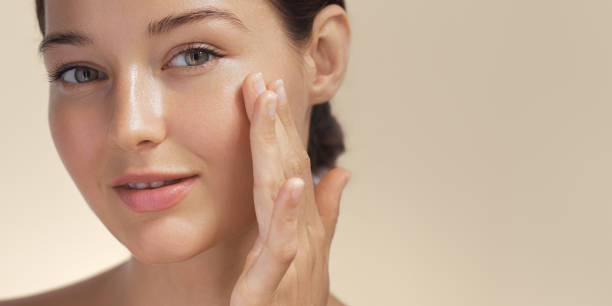Skinimalism: The Minimalist Approach to Beauty
The beauty industry has long been synonymous with excess – countless products, complex routines, and the constant pursuit of perfection. However, a new movement is gaining traction, challenging these norms and reshaping our approach to skincare and cosmetics. Skinimalism, a portmanteau of "skin" and "minimalism," is revolutionizing beauty routines worldwide. This philosophy emphasizes simplicity, effectiveness, and sustainability, encouraging individuals to streamline their regimens and embrace their natural features. As consumers become more conscious of their environmental impact and seek authenticity in an age of filters and unrealistic beauty standards, skinimalism offers a refreshing alternative to the traditional beauty narrative.

The 2008 financial crisis played a significant role in shaping consumer behavior, leading many to reassess their spending habits and prioritize value over quantity. This shift in mindset slowly permeated the beauty industry, with consumers becoming more discerning about their purchases and seeking multifunctional products.
The advent of social media and the constant pressure to present a perfect image online initially fueled the demand for more products and elaborate beauty routines. However, as the negative impacts of this culture became apparent, a counter-movement began to emerge, championing authenticity and natural beauty.
Core Principles of Skinimalism
At its heart, skinimalism is about simplification and intentionality. The movement encourages individuals to curate a minimal collection of high-quality, multipurpose products that truly work for their skin type and concerns. This approach not only saves time and money but also reduces waste and environmental impact.
Another key principle is embracing imperfections and natural features. Skinimalism challenges the notion that flawless skin is the ultimate goal, instead promoting self-acceptance and celebrating individual uniqueness. This shift in perspective has far-reaching implications for mental health and self-esteem, particularly among younger generations.
Skinimalism also emphasizes the importance of understanding one’s skin and its needs. Rather than blindly following trends or influencer recommendations, proponents of this philosophy advocate for a more personalized approach to skincare, based on individual skin types, concerns, and lifestyles.
The Science Behind Less is More
Contrary to popular belief, using fewer products can actually be beneficial for skin health. Dermatologists have long warned about the dangers of over-cleansing and over-exfoliating, which can disrupt the skin’s natural barrier function and lead to irritation, inflammation, and increased sensitivity.
Research has shown that the skin’s microbiome – the diverse ecosystem of bacteria that lives on its surface – plays a crucial role in maintaining skin health and protecting against pathogens. Excessive use of harsh cleansers and antimicrobial products can disrupt this delicate balance, potentially leading to various skin issues.
Moreover, layering multiple products increases the risk of adverse reactions and incompatibilities between ingredients. By simplifying routines and using fewer, carefully selected products, individuals can minimize these risks and allow their skin to function more naturally.
The Environmental Impact of Skinimalism
The beauty industry has long been criticized for its environmental footprint, from excessive packaging to harmful ingredients. Skinimalism offers a more sustainable alternative by encouraging consumers to buy less and choose products with minimal, recyclable packaging.
Many skinimalist brands are leading the way in sustainability, opting for refillable containers, plastic-free packaging, and responsibly sourced ingredients. This shift not only reduces waste but also puts pressure on larger companies to adopt more environmentally friendly practices.
Furthermore, the emphasis on multipurpose products reduces the overall number of items produced and consumed, potentially leading to significant reductions in energy use, water consumption, and carbon emissions associated with manufacturing and transportation.
The Economic Implications of Skinimalism
The rise of skinimalism presents both challenges and opportunities for the beauty industry. While it may lead to decreased sales of individual products, it also opens up new markets for high-quality, multifunctional items and sustainable brands.
For consumers, adopting a skinimalist approach can result in significant cost savings. By investing in a few carefully chosen products rather than an extensive array of specialized items, individuals can achieve better results while spending less overall.
This shift in consumer behavior is also driving innovation within the industry. Companies are now focusing on developing more effective, multipurpose formulations and exploring new sustainable packaging solutions to meet the demands of skinimalism-minded consumers.
Skinimalism and Mental Health
The impact of skinimalism extends beyond physical appearance and environmental concerns. This movement is closely tied to broader conversations about mental health, self-acceptance, and the pressure of social media.
By encouraging individuals to embrace their natural features and imperfections, skinimalism challenges the unrealistic beauty standards perpetuated by traditional media and social platforms. This can lead to improved self-esteem and body image, particularly among younger generations who are most affected by these pressures.
Moreover, simplifying beauty routines can reduce stress and anxiety associated with complex skincare regimens and the constant pursuit of perfection. This aligns with broader wellness trends that emphasize mindfulness and self-care as integral components of mental health.
The Future of Skinimalism
As we look to the future, it’s clear that skinimalism is more than just a passing trend. Its principles align with broader societal shifts towards sustainability, authenticity, and holistic well-being, suggesting that this movement will continue to shape the beauty industry for years to come.
We can expect to see further innovations in multifunctional products, sustainable packaging, and personalized skincare solutions. The line between skincare and makeup may continue to blur, with more products designed to both nourish the skin and provide cosmetic benefits.
Education will play a crucial role in the future of skinimalism, with a growing emphasis on understanding skin biology and the science behind skincare. This knowledge will empower consumers to make more informed choices and develop truly personalized routines that work for their unique needs.
As skinimalism continues to evolve, it has the potential to fundamentally reshape our relationship with beauty, promoting a more holistic, sustainable, and empowering approach to self-care. By embracing simplicity and authenticity, we may find that less truly is more when it comes to achieving healthy, radiant skin and a positive self-image.





